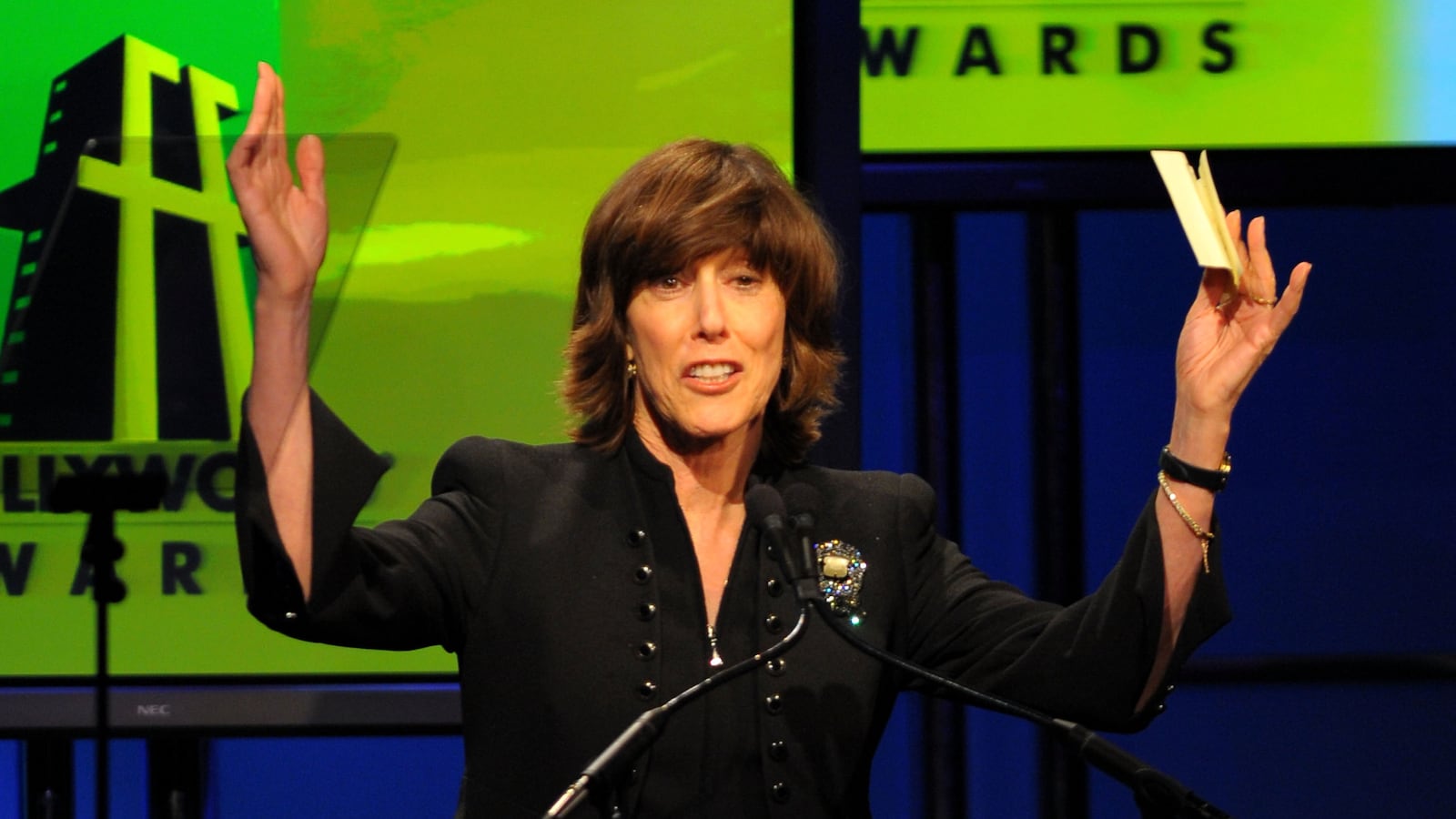In 1998, I read Laura Miller’s blistering review of “You’ve Got Mail” and concluded, idiotically, that that was all I needed to know about Nora Ephron. Miller’s indictment of a sanitized, anaesthetized New York—she titled it “You’ve Got Malls”—soured me on Ephron, I thought, for good. I’d recently come to the city and I was filled with cynical conclusions of what New York should be and should not be. “You’ve Got Mail” was a definitive should not. I’m not proud of this.
Soon afterwards, I found myself fact-checking at New York Magazine and poring through their bound volumes from the 70s. One night, I turned a page and discovered something I hadn’t known existed: Nora Ephron, brilliant, personal and scathing reporter, an exemplar of New Journalism (a term she rejected), and I was amazed. She brought her quizzical and absurdist touch to everything from the Watergate hearings to a pornographer’s “women’s magazine.” I rearranged my thoughts; in the context of her journalism and other writings, Ephron’s film work was one piece in a mosaic of genius.

And the mosaic doesn’t end. We remember her journalism mostly for its takes on feminism and for her tales of personal experience. But she also covered a war.
In 1973 she filed dispatches from Tel Aviv during the Arab-Israeli War, “what some Israelis call the war without a name,” but which Israelis now call The Yom Kippur War. Ephron arrived a week before the war ended. “I did not see a great deal of the war itself,” she writes. “Just the debris of war, the wounded in the hospitals, the aftermath in the desert, the people themselves.” These are two pieces that ought to be read in tandem—one is about watching war, the other about the results of war. Alone they are harrowing, together they make you speechless. It’s the Ephron we’re familiar with—when she heard that the Tel Aviv Hilton she was staying at might soon be bombed, she writes, “I decided to have my hair done.” But it’s also a new Ephron—here she’s covering a horror.
The earlier piece, “The War Followers,” dated November 12, 1973, is about the droves of American Jews and foreign correspondents that flooded the country during and after the war. It starts off quirky and absurd—focusing on Jewish Americans lounging around Tel Aviv hotel bars and looking for a way to see some action. One speaks wistfully about gathering information on Russian tactics; a couple brought their Yorkshire terrier named Chaim Yankel with them.
Then, imperceptibly, the piece shifts to the war correspondents—they’ve come for adventure. The light touch remains as we’re lulled in as voyeurs, just like the war tourists and correspondents she jibes:
And the awful truth is that for correspondents, war is not hell. It is fun. Short wars are even more fun. Just wars are the most fun of all. And this war – which has been short, and, in the eyes of most of the correspondents here, just – has also had a number of added attractions. It is possible to go to the front and be back in time for dinner…
And then, without warning, it’s about death: freak accidents, journalists killed and others who could have been killed in the same spot. She tells of one writer for the London Sunday Times, Nick Tomalin, who was killed by an anti-tank missile in the Golan Heights. He died unsure of whether the Times was interested in the “action stuff” he was covering. Ephron comments: “The notion that Tomalin’s death would have been meaningful had his paper wanted the story is probably entirely logical within the context of war; outside that context, it makes no sense whatsoever.”
The piece ends with Jack Laurence of CBS talking about a recurring nightmare of jumping out a window. From American Jewish war tourists lounging around hotels to the ghastliness of death up close: That was one part of Ephron’s empathetic literary genius.
In “Israeli Notebook: Thoughts With the Cease Fire,” Ephron ups the ante and shows us what Laurence only alluded to. If “Followers” was about war watchers, “Israeli Notebook” is about a society that “wage[s] war better than they do anything else.”
The construction is the same in “Israeli Notebook,” only here, instead of starting with soft American tourists dreaming of international espionage, it begins with hardened, and in some cases bloodthirsty, Israelis. “I constantly have to remind myself that the Israelis have had little choice but to fight,” she writes, “that it is inevitable for them to have become as chauvinistic and militaristic as they have.”
Her absurd touch remains: “…one of the trucks [in a UN convoy], incredibly, seems to be entirely filled with bottles of after-shave lotion.” But soon she slides back into the grisly:
Nothing much really happens on these trips…You travel through a landscape so unrelated to anything you have ever seen that it almost seems merely to be a Disney reconstruction of a battlefield; then you pass a dead soldier on the road, the smell hits you, and you remember that this is not a movie or an amusement park, but simply something completely unreal.
She takes us to a hospital—“Why was it so important that no one cry?”—and ends at a scene of mass mourning—and heartbreak—in a cemetery. She is not hopeful, but empathizes, and implicitly explains the chauvinism and racism that begin the piece:
There is no way to imagine what that is like, no way to imagine life in a country so constantly and literally traumatized by war; and I suppose it is not at all strange that so many of the young have reacted to it with a kind of stoicism that at times resembles numbness.
Here’s to Nora Ephron, the brilliant, hilarious, self-skewering creative genius, and also to Nora Ephron, who reminded us of the horrible human costs of war.





